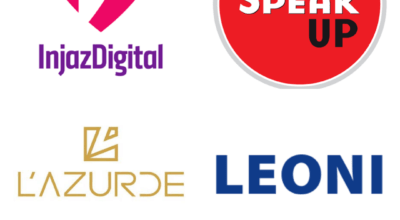Beyond Technical Expertise: 8 Soft Skills to Help You Excel in Your Career
The job market is always in high demand for exceptional employees with various technical skills. However, that’s no longer enough. Today, enterprises are seeking applicants who also possess essential soft skills.
Soft skills are your gateway to career longevity, as they can secure you a successful and stable professional journey. According to numerous studies, without mastering soft skills, your technical expertise may go to waste. You can’t have one without the other.
What Are Soft Skills and Why Are They Essential?
Soft skills are intangible traits developed through life and work experience. They are not tied to a specific age or position. Also known as interpersonal skills, soft skills are refined through interactions with others and play a pivotal role in professional success.
8 Soft Skills You Need to Develop
1. Conflict Mitigation
Conflict mitigation is the ability to defuse tense situations while maintaining a professional and positive work environment. According to LinkedIn career expert Andrew McCaskill, conflict mitigation is one of the most in-demand soft skills today, especially as toxic work environments have become more visible. Managing conflict requires openness, emotional intelligence, situational awareness, impartiality, and the cleverness to rebuild a collaborative atmosphere.
2. Emotional Intelligence (EQ)
While companies once prioritized a high IQ, they now also place strong emphasis on EQ — emotional intelligence. EQ is the ability to recognize and manage your own emotions while understanding and empathizing with others. It’s a vital leadership trait for fostering cohesion and a healthy workplace. As renowned psychologist Daniel Goleman put it, EQ is just as important as IQ — if not more — for achieving success.
3. Critical Thinking and Problem-Solving
Critical thinking and problem-solving involve recognizing problems and addressing them effectively using the information available. Managers value employees who remain composed under pressure, think on their feet, and persist in finding solutions — even when they don’t have all the answers.
4. Adaptability and Resilience
According to LinkedIn, adaptability and resilience are highly sought-after soft skills. These traits help individuals adjust to new environments, bounce back from setbacks, and remain productive in the face of change. Adaptability enables you to embrace new ideas and roles, while resilience helps you tackle challenges and manage stress. Much like solving a Rubik’s cube, companies seek individuals who can align with shifting circumstances.
5. Networking
Networking is a powerful channel to unlock career opportunities. As the saying goes, “Your network is your net worth.” Building genuine connections opens the door to business prospects, mentorship, and career growth. Strong communication skills enhance your ability to build rapport, reduce conflict, and master the art of persuasion to reach beneficial outcomes.
6. Time Management
Time management is another crucial soft skill. Companies look for candidates who meet deadlines, stay organized, and prioritize effectively. As Shakespeare once said, “Better three hours too soon than a minute late.” Mastering time management shows that you value your time and that of others — arriving on time, setting priorities, and working smarter, not harder.
7. Teamwork
A common interview question is, “Are you a team player?” Strong teamwork creates a healthy, collaborative environment and fuels creativity. The success of any project often hinges on how well a team works together, leveraging each member’s strengths.
8. Self-Motivation
As Cristiano Ronaldo once said, “Talent alone, without working hard, is nothing.” Employers value ambitious individuals who continuously strive to improve. Self-motivation keeps you moving forward — even during burnout — and proves your dedication to personal and professional growth. It signals commitment, resilience, and a desire to excel regardless of circumstances.
In a Nutshell
Soft skills are essential for securing your place in any company. Employers seek top-tier professionals who balance technical expertise with interpersonal finesse. Whether it’s resolving conflicts, adapting to change, staying motivated, or collaborating with others — mastering soft skills opens the door to countless opportunities and long-term success.




























